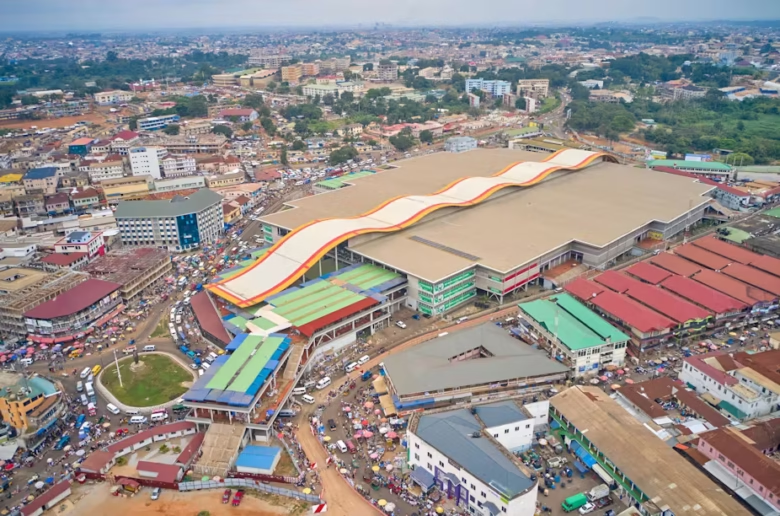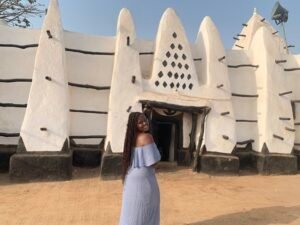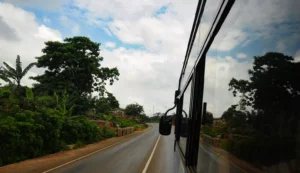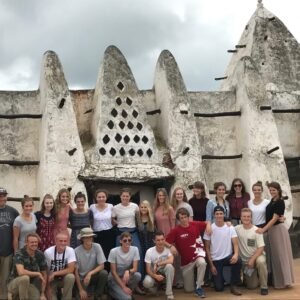Ghana is a country of rich traditions, deep-rooted heritage, and vibrant regional identities. While Accra serves as the political and economic capital, Ghana’s true cultural heart beats strongest in cities like Kumasi and Tamale, as well as in smaller towns and regions that preserve centuries-old customs and craftsmanship.
This guide explores the cultural capitals of Ghana—places where art, history, royalty, music, and spirituality are not only celebrated but lived daily.
Kumasi – The Royal Capital of the Ashanti Kingdom
Region: Ashanti Region
Population: ~3 million
Known For: Ashanti heritage, gold, traditional crafts, royal lineage
Kumasi is the spiritual and political capital of the Ashanti people, one of West Africa’s most influential ethnic groups. It’s where the Asantehene (Ashanti King) resides, and the city remains a proud stronghold of royal customs, festivals, and traditional governance.
Top Cultural Attractions:
- Manhyia Palace Museum
The residence of the Asantehene and a well-curated museum showcasing royal regalia, war artifacts, and Ashanti history. - Kejetia Market
One of the largest open-air markets in West Africa—perfect for witnessing everyday life and buying Kente, beads, and shea butter. - Prempeh II Jubilee Museum
Located inside the Kumasi Cultural Centre, this museum delves deeper into Ashanti symbols, relics, and royal narratives. - Bonwire & Ntonso Craft Villages
Visit these villages to see how Kente cloth is woven and Adinkra symbols are hand-stamped using natural dyes. - Akwasidae Festival
Held every six weeks at the Manhyia Palace, this event showcases royal pageantry, music, drumming, and traditional court rituals.
Local Tip: Dress respectfully and ask permission before taking photos during royal events.
Tamale – Ghana’s Islamic and Northern Cultural Hub
Region: Northern Region
Population: ~900,000
Known For: Islamic influence, Dagomba traditions, leatherwork, food
Tamale is the gateway to Northern Ghana and a modern city infused with deep tradition. Its large Muslim population and rich northern heritage give it a distinct cultural flavor compared to the southern parts of Ghana.
Must-See Cultural Sites:
- Central Mosque & Surrounding Islamic Architecture
Influenced by Sudano-Sahelian design, the mosques in and around Tamale reflect centuries of Islamic presence. - Tamale Cultural Centre
Explore northern Ghanaian crafts, traditional attire, woodwork, and musical instruments. It’s also a great place to buy leather sandals and bags. - Mole-Dagbon Cultural Identity
Learn about the Dagomba people through oral histories, festivals, and community visits. - Mariam Leather Tannery
Witness traditional methods of leather processing—raw, pungent, and real. - Local Cuisine
Don’t leave without trying Tuo Zaafi (TZ), guinea fowl, or spicy northern stews with dawadawa (fermented locust beans).
Tip: Friday prayer time is a significant communal moment—respect the quietude and modest dress expectations during mosque visits.
Cape Coast & Elmina – Heritage and Historical Identity
Region: Central Region
Known For: Colonial forts, transatlantic slave history, Fante culture
While not often considered “cultural capitals” in the traditional sense, Cape Coast and Elmina are essential for understanding Ghana’s cultural memory and identity, especially concerning African diaspora heritage.
Important Sites:
- Cape Coast Castle
A UNESCO World Heritage Site with powerful guided tours about the Atlantic slave trade. More info here - Elmina Castle
The oldest European structure in Sub-Saharan Africa (built by the Portuguese in 1482). The guided tour offers insights into pre-colonial and colonial interactions. - Fetu Afahye Festival (Cape Coast)
A colorful annual event that showcases Fante traditions, processions, and ancestral rituals. - Posuban Shrines
Unique to Fante communities, these shrines mix military symbolism with ancestral veneration and can be seen scattered throughout the towns.
Ho & the Volta Region – Ewe Culture and Natural Spirituality
Region: Volta Region
Known For: Ewe traditions, mountain villages, drumming, sacred groves
The Volta Region is an underappreciated cultural gem, with strong Ewe heritage and a landscape dotted with spiritual sites and festivals.
Cultural Highlights:
- Amedzofe & Avatime Hills
Visit Ghana’s highest altitude settlements, known for their independence, nature worship, and early missionary interactions. - Hogbetsotso Festival (Anloga)
This major Ewe festival commemorates the historic migration from Notsie (Togo) and features dramatic re-enactments, dancing, and regalia. - Kente Weaving in Agotime-Kpetoe
Ewe Kente is known for its intricate patterns and storytelling motifs—visit local looms to learn more. - Sacred Groves and Forest Shrines
Many areas in the Volta Region protect sacred natural spaces used for rituals and healing, emphasizing harmony with nature.
Bolgatanga – Art and Spiritual Traditions of the Upper East
Region: Upper East Region
Known For: Basket weaving, rock shrines, ancestral rituals
Located in Ghana’s arid northeast, Bolgatanga is a center of cultural craftsmanship and traditional belief systems.
Explore:
- Bolga Basket Market
World-famous baskets made from elephant grass—each one handmade and often dyed with natural pigments. - Tongo Hills & Tenzug Shrine
Sacred ancestral shrines in the cliffs. To enter, visitors must remove their shirts—a symbol of respect and submission to the spirits. - Paga Crocodile Pond
Crocodiles here are considered spiritual and are treated as sacred animals linked to ancestors. - Navrongo Cathedral
Built with mud bricks, this historic Catholic church beautifully blends Christian and local influences.
Accra – Ghana’s Cultural Crossroads
Region: Greater Accra Region
Known For: Museums, nightlife, Ga traditions, modern art
Though Accra is a modern metropolis, it still carries layers of culture, particularly from the Ga people and Ghana’s post-independence narrative.
Cultural Must-Dos:
- Kwame Nkrumah Mausoleum
Memorial park for Ghana’s first president, with symbolic architecture and national pride. - W.E.B. Du Bois Centre
A hub for Pan-Africanism and diaspora heritage. - Jamestown
A historic Ga fishing community with colonial lighthouses, street art, and boxing gyms. The annual Chale Wote Festival brings thousands together for music, art, and performance. - National Theatre and Art Centres
Watch traditional dance, buy crafts, or attend plays and concerts showcasing Ghanaian talent.
Festivals: The Beating Heart of Cultural Life
Almost every cultural capital in Ghana hosts one or more major festivals that offer the best chance to witness ceremonial dress, music, dance, rituals, and oral traditions.
| Festival | Location | Month | Cultural Significance |
|---|---|---|---|
| Akwasidae | Kumasi | Every 6 weeks | Celebrates Ashanti ancestry & kingship |
| Damba Festival | Tamale/Yendi | Sept–Oct | Islamic origin, Dagomba royal celebration |
| Hogbetsotso | Anloga (Volta) | November | Ewe migration story from Notsie, Togo |
| Fetu Afahye | Cape Coast | September | Cleansing festival for spiritual renewal |
| Fire Festival | Northern Regions | January | Bugum Chugu – commemorates a spiritual event |
Tips for Cultural Travelers in Ghana
- Be Respectful: Ask before taking photos of people, shrines, or rituals.
- Dress Appropriately: Especially during festivals or royal visits—modest attire is best.
- Engage Locals: Learn greetings in local languages and be open to stories and explanations.
- Support Artisans: Buy crafts directly from makers in villages when possible.
- Hire Local Guides: Their insights make cultural experiences far more meaningful.
Conclusion
From the royal courts of Kumasi and the Islamic traditions of Tamale to the ancestral rituals in Bolgatanga and the nature-worshipping communities of the Volta Region, Ghana’s cultural capitals offer authentic, diverse, and deeply rooted experiences.
Exploring these regions provides more than just a glimpse into Ghana’s soul—it gives travelers a living education in history, art, spirituality, and resilience. Whether you’re a first-time visitor or a returning traveler, these cultural heartlands promise unforgettable encounters that stay with you long after you leave.




